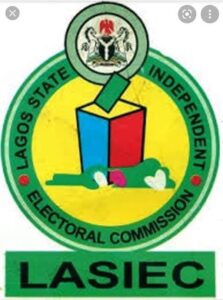.....Reviving Local Governance Through Credible Elections: The Imperative of Grassroots Participation in Lagos

By Ibrahim Kegbegbe
As Lagos State prepares for its Local Government Chairmanship and Councillorship elections on Saturday, July 12, 2025, the attention of both the political class and the governed should turn—not just to the ballot boxes—but to the larger question of grassroots democracy and development. While national and gubernatorial elections attract headlines and high voter turnout, local government elections are too often marred by apathy, voter suppression, and a lack of genuine competition.
Yet, local government is the closest tier of government to the people. It is at this level that streetlights are installed, potholes are filled, community health centres are managed, and market stalls are built. Therefore, what happens at the local polls should matter most to everyday citizens. Unfortunately, in Lagos—as in most parts of Nigeria—local government elections are frequently treated as political rituals rather than the democratic processes they are meant to be.
The Lagos State Independent Electoral Commission (LASIEC), under enormous pressure to deliver a credible election, must prove its independence. Although the Lagos State Government has consistently projected itself as a bastion of political progressivism, the perception remains that local council seats are largely decided by party hierarchy, not the will of the people. The dominance of one party, with near-zero opposition wins in previous cycles, does little to inspire confidence in the fairness or competitiveness of the elections.
What is even more concerning is the low voter turnout historically associated with local elections. Many Lagosians do not even know who their local government chairmen or councillors are, nor do they see the impact of these officials in their daily lives. This is a failure of political education, civic engagement, and institutional accountability.
READ ALSO:Tiri Leather Crushes Apesin on Audiomack, Plans UK Tour
However, this Saturday presents a new opportunity. The Lagos State Police Command has taken proactive steps to ensure a violence-free election, with a total restriction of movement from 3:00 a.m. to 3:00 p.m. on election day. Commissioner of Police, CP Olohundare Moshood Jimoh, has outlined clear security measures, including a ban on armed escorts, indiscriminate sirens, and covered number plates. These are laudable moves—but they must be backed by neutral, professional enforcement. Security should protect the ballot, not intimidate it.
Citizens must equally take responsibility. It is no longer enough to complain on social media about bad roads, poor sanitation, or underperforming schools without participating in the process that determines who oversees these functions. Grassroots governance begins with grassroots participation. Democracy is not just about casting votes—it is also about holding elected officials accountable once they assume office.
To truly reform and strengthen local government administration in Lagos State, we must do more than vote. We must demand transparent election results, credible opposition participation, and post-election performance assessments of those elected. A councillor who fails to speak at council meetings, inspect community projects, or attend ward forums should be called out by constituents.
The July 12 elections offer more than a routine exercise; they offer a rare chance to reclaim the promise of local government as a functional and responsive institution. If citizens vote wisely, LASIEC conducts credibly, and security agencies remain neutral, then perhaps this year’s local polls can reset the tone for grassroots democracy in Lagos—and by extension, Nigeria.
















